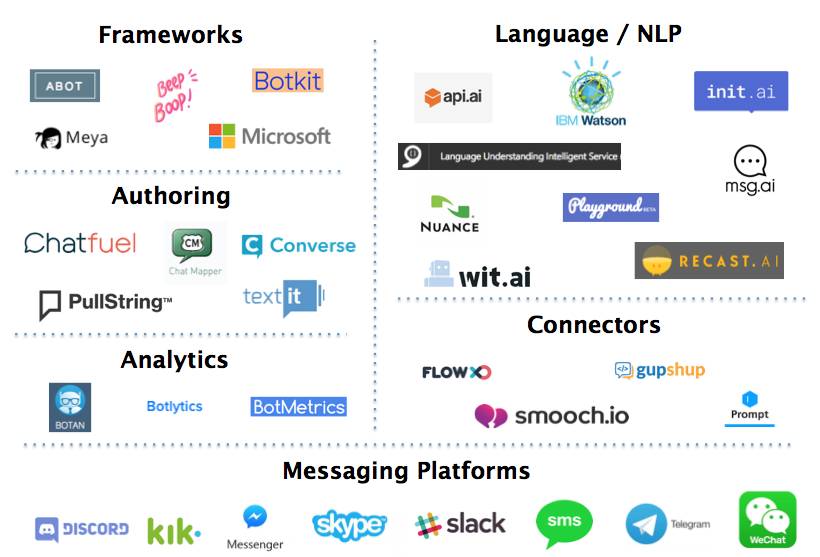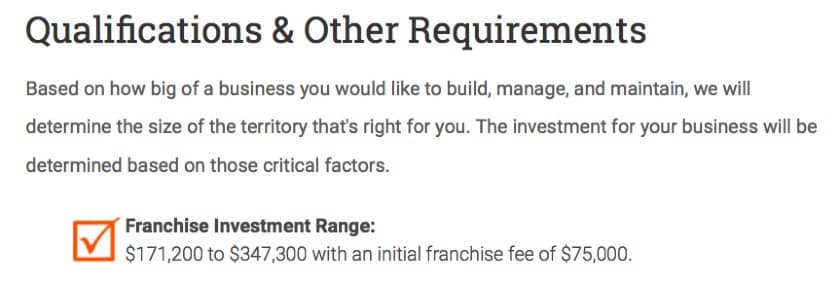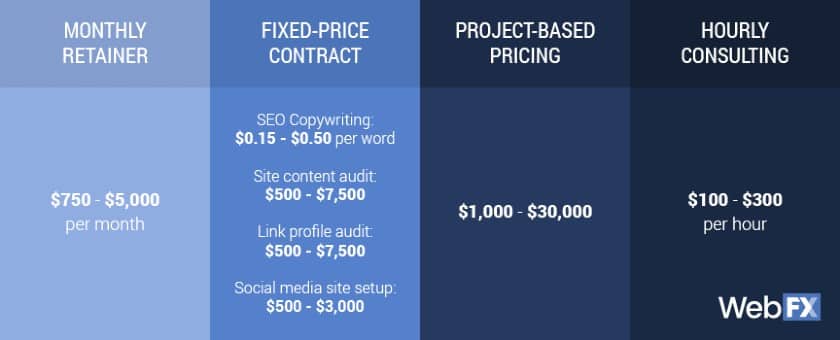Tech startup ideas cover a wide range of businesses, from software or physical tech sales to businesses that completely rely on technology like independent livestream reporting. All tech businesses can be profitable, with the most successful ones earning millions of dollars per year. Some have an edge with proprietary information, while others are more innovative.
Before starting your tech company, it’s important to register the business as a legal entity. This ensures that the founder won’t be held personally liable for any debt the startup assumes. Rocket Lawyer is an online legal service that assists with registering a business as a legal entity. Additionally, Rocket Lawyer provides forms like a nondisclosure agreement. Sign up to get started with Rocket Lawyer today.
Here are 14 tech startup ideas for entrepreneurs:
1. Chatbot Developer
Online chat for businesses is becoming more popular including with Fortune 500 companies, franchises, and small businesses. As artificial intelligence (AI) becomes more advanced, online chat bots will become one of the main communication channels we have with companies. Chatbots save companies money by setting up computers that communicate with customer versus people (who need to be paid). If you’re interested in coding, creating chatbots is a lucrative niche to get into.
To connect with potential customers, you can create your own business and brand or join a freelancing website. Botmakers.net and Upwork connects freelancers, like chatbot developers, with business owners looking to create their own custom chatbots. The average cost of a custom chatbot is $30,000.

There are several options to choose from when deciding what chatbot coding language to specialize in
2. Sell Drones And Related Services
A hands-on tech business idea is to sell drones or provide repair services to those who already own a drone. If you’re a drone hobbyist, opening a store is a great opportunity to teach others about something in which you’re already interested. You can also assist with repairs and ordering parts. The downside of opening a drone-based store is the cost. Plan to spend at least $50,000 opening a small retail location.
Another business option for a drone hobbyist is to provide services, such as photography, video, mapping, and industrial inspection. A drone business that specializes in providing a service has low overhead, because it can provide operate without a physical location. However, because this business doesn’t have a storefront, it will require consistent networking until you grow a large client base. It may be helpful to have a solid online presence with an optimized website, social media, and Google My Business listing.
3. Subscription Delivery Service
Subscription-based delivery services are expanding into niche and specific industries. Nurx, a birth control delivery company, recently raised $40 million. Dr. Squatch, a soap delivery company for men, earns over $10 million in revenue every year. With hyper-targeted advertising on Facebook, Instagram, and YouTube, companies are able to reach very specific demographics, which enables the delivery subscription services to get in front of their ideal customers.
If you believe you have a subscription delivery service idea, start small and sell to family, friends, and through local networking. There is a lot of technology involved to scale this type of business, because it’s largely an online business. Tech-related skills are important to making this business a success, including having the skills to manage online advertising, website development, delivery tracking, and customer relationship management (CRM) experiences.
4. Mobile Computer Repair
There is a large demand for computer repair, especially among those who are not tech savvy. Computers get viruses and have software issues that need to be resolved. On average, computer repair technicians earn about $65 an hour.
Save money on expenses by not opening a brick-and-mortar location. A mobile business allows you to visit customers in their homes. This is especially important to customers who have large desktop computers that are not easily moved. Non tech savvy individuals also don’t like to unplug computer cords, because it’s hard to tell which cords go where.
To succeed with a mobile computer repair business, you’ll have to consistently market your business. You won’t have a physical location that potential customers can visit. Therefore, it will be helpful to understand online marketing, like Google My Business optimization, social media marketing, and Google Ads. Also, it’s a good idea to do networking in your local area. Businesses may come to you for help with setting up their computers and for removing viruses.

Nerds2Go is a mobile computer repair franchise that requires a franchise fee of $75,000
5. Smartphone Repair Company
An alternative to the computer repair business that deals less with software and more with physical technology is a smartphone repair business. This type of business fixes smartphone issues like cracked screens, water damage, lack of signal, dead battery, and broken buttons. Often, in addition to smartphones, tablets and computers are also serviced.
You can operate a smartphone repair business on a part-time or full-time basis. With part-time businesses, the average cost for a smartphone repair is $80. Ten customers a week would be $800 ($80 X 10 customers= $800) in revenue per week. Many smartphone issues, like cracked screens, take less than 30 minutes to repair.
Another business option you can choose if you’re interested in offering smartphone repair services is opening a store, such as a franchise. The Cell Phone Repair (CPR) franchise is a common option with over 100 franchises across the US. The downside is the cost. Opening a CPR franchise requires a $25,000 initial franchise fee, $15,000 training fee, and $85,000 in cash on hand. The total cost to open a CPR ranges from $55,650 to $170,500.
If you’re seeking a loan from a bank to cover a portion of the franchise fee, you will need a detailed business plan. You can create the business plan by hand, or use an online software. LivePlan is an affordable and easy-to-use business plan software. As you create a business plan, learn from its online video tutorials. Get started with LivePlan today for $11.66 per month.
6. Online Ads Manager
In recent years, online advertising has expanded into several online platforms including Facebook, Instagram, Twitter, YouTube, LinkedIn, Pinterest, Google, and Bing. The demand for these services is large, because many small business owners are not tech savvy, enough to effectively manage ads for any of these platforms. When starting out as an online ads manager, you only need to be proficient in one platform to get a client. You don’t need to know every platform—few marketers do.
To learn how to use these platforms, start small. Experiment with low-cost ads that promote your own services—some are as low as $5 or less for each ad.
Being an online ads manager can be very lucrative. Instead of charging an hourly rate, make an arrangement with clients so you earn a percentage of the profit increase they realize from your ads. If you can help a business acquire more customers, they will pay you well for your services.
For example, if you create Facebook ads that acquire 80 new customers a month, and each customer is valued at $50 (profit), your client will earn an additional $4,000 in monthly profit. Instead of charging an hourly rate, you can charge clients a percentage of the additional revenue they earn. In our example, charging 25% would earn you $1,000 per month (4,000 X 25%= $1,000).
7. Sell An Online Course
An online course is a collection of videos that experts use to teach others a concept on the web. Typically, customers can purchase an online course with a one-time payment, whereas a membership website usually sells access to a variety of course content through recurring payments. An online course relies heavily on technology, including the recording equipment, editing and publishing software, and a website host. An online marketing strategy is also important, so potential customers can discover your content.
Udemy is the largest online course platform on which you can sell the courses you create; however, it’s difficult to build a full-time business there. Although the courses range in price, on average, they sell for $20, and course creators only earn 50% of that. You should consider using Udemy if you’re a beginner who needs to learn the basic skills on how to create a course before launching your own on a paid platform like Teachable.
If you’re looking to create a full-time business using online courses, it’s best to build your own audience online before creating the course. We recommend collecting at least 1,000 emails from interested customers before launching your course. You can collect emails of potential customers by giving away a freebie download on your website or preferred social media platforms.

Udemy has a large customer base, but with over 100,000 courses available, the competition is tough
8. Tech-based YouTube Channel
If you enjoy using new technology and learning why certain products are better than others, consider starting a YouTube channel reviewing tech products. Additionally, you can teach people how to use the technology by developing an instruction-based channel. A YouTube channel is a great tech startup because it’s fairly low cost. Also, you can operate it as a side business until your following grows large enough to support a full-time income.
You can earn revenue from a tech-related YouTube channel in a few different ways. On average, YouTube pays $2 to $5 for every 1,000 views. Once your channel acquires a certain amount of subscribers, technology companies may give you free tech products to review. Grow your subscriber base, and the same technology companies may pay you a fee to review their products on your channel; this is a great way for them to boost their advertising efforts and tap into your audience.
If you’re creating an education channel, you can create digital products to sell to your audience. For example, you can promote an e-book or online course that will help your audience continue their learning. Additionally, you can ask your audience to make a donation on Patreon to support your channel and to receive exclusive access to new content.
9. Independent Livestreaming Reporter
With the increase of social media use, unlimited data, and improved smartphone technology, independent livestream reporting is a growing business opportunity. Some believe over the next decade or so, there will be thousands of independent reporters operating as small news-based business owners and only a few large news companies.
To become an independent livestreaming reporter, you must have sufficient tech knowledge. You have to be savvy with the livestreaming software on social media and able to create and publish videos on platforms like YouTube. Additionally, you have to be Twitter-savvy to build your Twitter followers.
On average, you can earn around $60,000 as an independent livestreaming reporter with paid Patreon supporters, YouTube supporters, and freelance gigs that larger news sources and magazines offer. The costs may include travel costs for plane rides, hotel, and food. For equipment, in addition to a quality smartphone, you may want to have a Go-pro, audio equipment, laptop, and video editing software, which can cost up to $2,000.
10. Website Development
Websites are in demand, because almost every small business needs one. There aren’t many barriers to entering the website development market, because online companies like Wix and Squarespace don’t require coding to create a site. The downside to this is that the average website price has gone down considerably, which means customers may be less inclined to pay premium rates. You can however offer low-cost websites in an effort to build a new relationship with business owners; later, you can sell them additional services like online advertising.
Website development is a great tech business idea, because it doesn’t require a physical location, and you can do it part-time. Create a few high quality websites to build your portfolio and start charging a higher fee for website development. Typically, you won’t want to charge less than $1,500 for a website. This price point ensures you maintain credibility and customers don’t take advantage of you.
If you’re creating a WordPress-based website (which is the platform used by one-third of the world’s websites), you will need hosting. Hosting is basically what a company, like DreamHost, does when it allows you to store your website to its server. DreamHost provides safe and secure hosting for all types of websites, including those with a small, medium, or large amount of visitors. Start your website with DreamHost for as low as $2.59 per month.
11. Search Engine Optimization Services
Consider a business providing Search Engine Optimization (SEO) services, which is the practice of getting online content to rank higher on search engines, like Google. SEO practices used to only focus on ranking websites. However, now they also focus on ranking videos, Google My Business listings (local SEO), and products on Amazon. To operate a search engine optimization business, you’ll need to understand how the latest search algorithms work.
An SEO business can be very lucrative for the same reason creating online ads can be lucrative. If you can demonstrate that your success is directly leading your business clients to an increase in sales, you can charge substantially more than an hourly rate.
For example, if your SEO services help an ecommerce website rank higher for a certain keyword and sell an additional 300 units a month at $20 in profit per unit, you will have helped it earn an additional $6,000 ($300 X $20= $6,000) in monthly profit. In this example, you would earn $1,500 ($6,000 X 25% = 1,500) monthly if you set up an agreement that you’ll be paid 25% of all increases in profit. Once you prove your worth, you can consider charging a monthly retainer for ongoing services.

Depending on experience, SEO freelancers charge between $100 to $300 an hour for consulting
12. Video Production For Web-based Platforms
Many online platforms are shifting to becoming more visual. Websites, Facebook pages, ecommerce pages, Instagram accounts, Amazon stores, and online ads can all benefit from using video. The cost to create quality videos has never been lower for people who are new to video production. Take the latest smartphones and combine them with minor production skills, and you can create professional-quality videos. Additionally, if you understand the type of videos you need on a platform like Instagram, you’ll instantly separate yourself from the average video producer.
When starting your business, make sure you have a portfolio with a few quality videos that you’ve created. Include testimonials from past clients. If possible, figure out how much of a sales increase your videos produced for your client. Video production is an industry in which value is subjective. A video could be worth $500 to one business. Whereas the same video is worth $5,000 to another business, because it increased their revenue by $50,000 over a six month period.
13. Virtual Life Or Career Coach
A virtual life or career coach is someone who helps clients achieve their personal or career goals. Previously, finding clients for coaching was limited to the people around where the coach lived. Now, with a compelling website, video, and social media, a life coach can acquire clients all over the world.
An online coaching business can be a low-cost startup. Use free technology, like Zoom Video Conferencing to host one-on-one video calls. If your client is traveling, they can make the video calls on their phone as well. You can earn an average of $50 an hour as a career and life coach. In-demand coaches, who have a quality online presence with followers, earn over six figures a year.
Building a client base so you can make a full-time living coaching takes time. Many coaches first build audiences on YouTube, Twitter, Instagram, and from blogging. Then, they sell their services to their audience. Providing free content online gives potential clients the opportunity to better understand your personality and self-improvement approach before hiring you.
14. Cybersecurity Maintenance & Consulting
Cybersecurity protects a business’s assets from online threats. It’s one of the fastest growing needs for small, medium, and large businesses. The depth of most business owners’ cyber security knowledge is as far as changing passwords every month and monitoring employees’ access to passwords. For any additional cyber security tasks, they need to hire an expert. There are several types of cybersecurity businesses from which you can choose to start. Most existing ones specialize in systems and networks.
The technology in a cybersecurity company involves a working knowledge of transmission control protocol (TCP) and internet protocol (IP). While you can learn about these systems from textbooks, it’s best to learn from firsthand knowledge in a position like systems administration analyst. Once you have the knowledge, you can open your consulting business providing cybersecurity advice and maintenance. As a consultant working on a large project, you can charge $75 to $150 an hour. Senior-level cybersecurity consultants charge up to $500 an hour.
Bottom Line
Starting a high-tech business is great for someone interested in physical technology, like a drone, or for someone interested in developing software, like a chatbot. Tech business ideas are increasing every year. It’s best to stay ahead of the trends and take advantage of new opportunities. Tech-based businesses tend to be profitable because they involve items and software people can’t figure out themselves, like broken smartphones or online advertising.
Before starting a tech business, make sure to register it as a legal entity with the state it’s operating in. Registering the business as a legal entity will protect the founder’s personal financial assets if a lawsuit were to occur against the startup. Rocket Lawyer is an online legal service that assists startup owners by organizing and submitting their paperwork to the state. Register your startup today with Rocket Lawyer for $99 plus state fees.